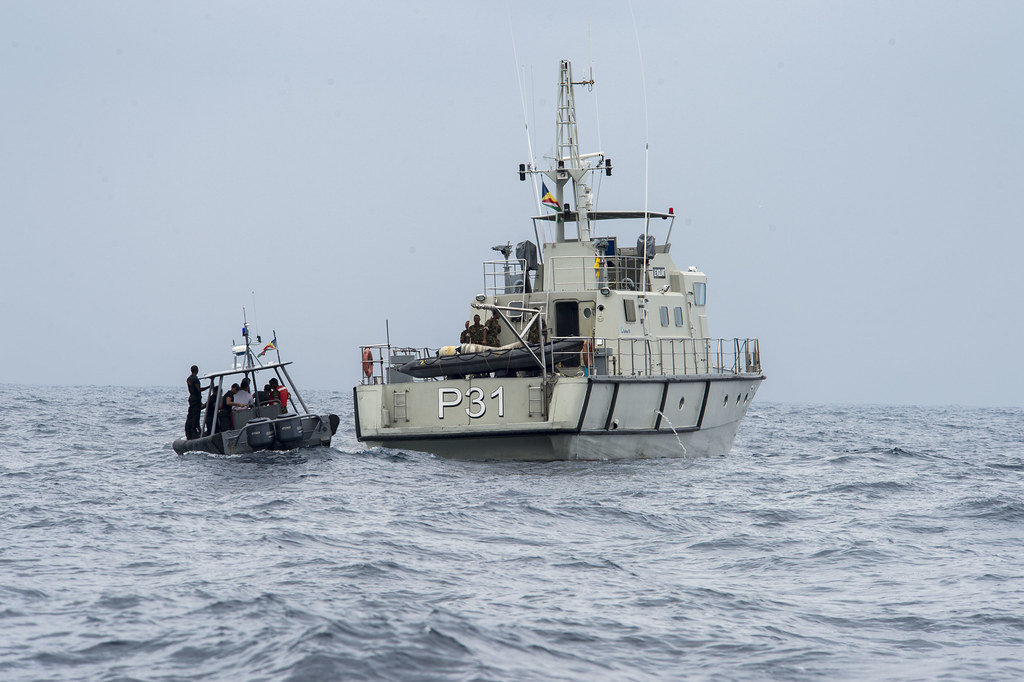Introduction
Small Island Developing States exercise governance over approximately 30 per cent of the world’s oceans through their Exclusive Economic Zones (EEZs), a vast maritime jurisdiction that confers upon them significant influence and profound responsibilities for ocean stewardship. This extensive maritime domain positions these nations more accurately as “large ocean states” rather than small island states—a shift that reflects their true geopolitical importance despite their limited terrestrial footprint and modest populations.
For island nations, the ocean represents far more than a geographical feature—it constitutes the foundation of their economic vitality, cultural identity, and food security. Blue economy sectors, particularly fishing and marine tourism, frequently comprise substantial proportions of national gross domestic product (GDP), with some island states deriving up to 40 to 50 per cent of their economic activity from ocean-based industries. This profound economic dependence renders maritime security not merely important but existentially critical to the national security of island states.
Complex Security Challenges in the Western Indian Ocean
The strategic positioning of island nations such as the Maldives, Mauritius, and Seychelles has naturally evolved them into leading advocates for the global responsibility to protect the sea. Their advocacy stems from practical necessity—these nations lack the human capital, financial resources, and technological capabilities to independently combat the sophisticated transnational maritime crimes that plague their waters. The Western Indian Ocean region exemplifies this challenge, where a complex web of security threats includes sophisticated narcotics smuggling operations, irregular migration flows, industrial-scale illicit fishing, and the persistent menace of Somali-based piracy that, despite international efforts, continues to evolve and adapt.
The region’s position astride critical global shipping lanes compounds these challenges exponentially. Nearly 40 per cent of global seaborne oil passes through the Western Indian Ocean, with thousands of vessels transiting daily. This intense maritime traffic exposes island nations to catastrophic risks, including potential oil spills, ship groundings, and marine pollution incidents that could devastate their pristine marine environments and tourism-dependent economies. The 2020 MV Wakashio oil spill off Mauritius, which released 1,000 tonnes of oil into ecologically sensitive waters, starkly illustrated these vulnerabilities.
Regional Cooperation Mechanisms and Their Limitations
The inherently transnational character of maritime security threats, combined with the capacity constraints of large ocean states, necessitates robust regional cooperation mechanisms and sustained international support. The Western Indian Ocean has witnessed the emergence of several institutional frameworks designed to address these challenges. The U.S.-led Combined Maritime Forces (CMF) coordinates multinational naval operations, while the Djibouti Code of Conduct (DCoC), facilitated by the International Maritime Organisation (IMO), provides a framework for regional policy cooperation and the coordination of capacity-building projects.
Central to regional efforts is the Regional Maritime Security Architecture (RMSA), spearheaded by the Indian Ocean Commission (IOC). The RMSA’s operational backbone comprises two sophisticated centres: the Regional Maritime Information Fusion Centre (RMIFC) in Madagascar and the Regional Coordination Operations Centre (RCOC) in Seychelles. These facilities enable real-time information sharing, maritime domain awareness, and coordinated responses to security incidents. However, the architecture faces significant gaps—notably, key regional states, including the Maldives and Sri Lanka remain outside the framework. Their absence partially stems from persistent terra-centric thinking that mischaracterises the RMSA as an “African” rather than a truly “Western Indian Ocean” initiative, undermining the ocean-centric perspective essential for effective maritime governance.
The Militarisation Dilemma
The region confronts a particularly acute militarisation dilemma that epitomises the complexities of contemporary maritime security. Effective responses to maritime threats require substantial naval capabilities that most island states cannot independently maintain, necessitating support from international navies. Yet this increased military presence risks transforming the Western Indian Ocean into an arena of great power competition, potentially destabilising the very region these forces aim to secure. Recent years have witnessed growing naval deployments from China, India, the United States, and European nations, each pursuing distinct strategic objectives while ostensibly contributing to maritime security.
Managing this delicate balance demands sophisticated diplomatic mechanisms and transparency, and confidence-building measures. Two regional institutions play pivotal roles: the Shared Awareness and Deconfliction (SHADE) forum facilitates navy-to-navy coordination and includes private sector maritime stakeholders, while the Contact Group on Illicit Maritime Activities (CGIMA) operates at the diplomatic level, providing a crucial platform for dialogue and confidence-building among regional and extra-regional actors. Ensuring that these mechanisms work well and are supported is essential to managing the militarisation dilemma.
Critical Maritime Infrastructure Protection
While traditional maritime security concerns—piracy, trafficking, and illicit fishing—dominate regional agendas, the protection of critical maritime infrastructure represents an underappreciated yet increasingly vital dimension. For example, submarine fibre-optic cables, carrying over 99 per cent of international data traffic, constitute the arteries of the global digital economy. Many island nations depend on just one or two cable connections, creating single points of failure that could sever their digital connectivity.
Emerging maritime infrastructure challenges extend to the renewable energy transition. Offshore wind farms, tidal energy installations, and floating solar arrays represent crucial components of island nations’ strategies to achieve energy independence and meet climate commitments. These installations require sophisticated protection against both intentional threats and natural hazards, demanding new security frameworks and capabilities. While the IOC, for instance, has a subsea data cable protection strategy, critical maritime infrastructure protection is not yet featured sufficiently in the regional maritime security strategy.
Charting the Way Forward
The maritime security challenges facing Indian Ocean island nations encapsulate the complexities of contemporary ocean governance. These “large ocean states” must navigate between competing imperatives: leveraging international naval support while preventing militarisation, protecting critical infrastructure with limited resources, and building inclusive regional frameworks that transcend artificial continental divisions.
Success requires these states to fully embrace their maritime identity in international forums while strengthening diplomatic mechanisms like SHADE and CGIMA to manage great power presence constructively. Critical infrastructure protection—from submarine cables to offshore renewable energy—demands urgent elevation on security agendas, building on initiatives like the IOC’s cable protection strategy.
Conclusion
The experiences of these island nations offer crucial lessons for global maritime security. Their ability to secure vast ocean territories with limited means, balance sovereignty with cooperation, and reconcile development with security will significantly influence international ocean governance. As maritime domains become increasingly central to planetary health and human security, the strategies pioneered by these large ocean states may well define the future of global maritime security.
Author
Christian Bueger is a professor of international relations at the University of Copenhagen and a research fellow at the United Nations Institute for Disarmament Research (UNIDIR). He is the author of Understanding Maritime Security (Oxford University Press, 2024, with Timothy Edmunds) and has explored questions of international security and global governance in more than 200 publications. He holds a PhD from the European University Institute. Further information is available on his personal website at www.bueger.info


